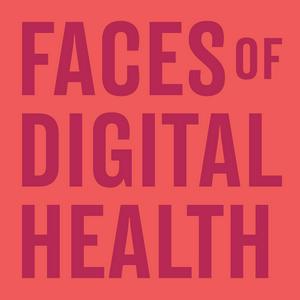Agentic AI and Longevity - Key topics at NextMed Health 2025
NextMed Health in a healthtech and biotech conference exploring the most forward thinking ideas and topics in healthcare. Taking place in San Diego, a four day programme covered topics such as latest developments in AI, aging, increasing lifespan and longevity, addressing mental health and exercise through VR, and more.
In this special episode of Faces of digital health, Gary Monk and Tjasa Zajc reflect on the key findings through additional discussions with:
Anthony Chang, MD, MBA, MPH, Founder, AIMed. Chief Intelligence & Innovation Office, Children's Hospital of Orange County
Daniel Kraft, MD, Founder & Chair, NextMed Health.
Bayo Curry-Winchell, MD, Founder, Beyond Clinical Walls. Urgent Care Medical Director, Saint Mary's Health Network
Steven Brown, AI developer, Coder, founder, investor, filmmaker
Jennifer Garrison, PhD, Professor, Buck Institute. Co-Founder & Director, ProductiveHealth.org
Eric Topol, MD, Founder and Director, Scripps Research Translational Institute
What's covered:
𝐀𝐈 𝐚𝐬 𝐚 𝐂𝐨𝐧𝐬𝐮𝐥𝐭𝐚𝐧𝐭
▶️ Case Study – Stephen Brown
▶️ Custom AI Tool Development: Brown built his own AI-based application using various LLMs (OpenAI, Anthropic, Gemini), emphasizing data cleaning, model cross-evaluation, and reliability testing.
Anthony Chang: Claimed it will soon be unethical not to use AI in areas like radiology, where AI improves diagnostic accuracy.
𝐓𝐨𝐩 𝐁𝐚𝐫𝐫𝐢𝐞𝐫𝐬 𝐟𝐨𝐫 𝐀𝐈 𝐮𝐬𝐞:
▶️ Lack of AI education among clinicians.
▶️ Absence of AI strategies in hospitals—often even lacking data governance.
▶️ Misaligned financial incentives across stakeholders.
▶️ Bias and Representation
𝐖𝐨𝐦𝐞𝐧'𝐬 𝐇𝐞𝐚𝐥𝐭𝐡 & 𝐎𝐯𝐚𝐫𝐢𝐚𝐧 𝐅𝐮𝐧𝐜𝐭𝐢𝐨𝐧
▶️ Ovaries Beyond Reproduction: ovaries regulate broader systemic health via signaling pathways (like “Wi-Fi”), impacting bone, skin, and possibly all organs
▶️ Gaps in Research
𝐋𝐨𝐧𝐠𝐞𝐯𝐢𝐭𝐲, 𝐑𝐢𝐬𝐤 𝐏𝐫𝐞𝐝𝐢𝐜𝐭𝐢𝐨𝐧 & 𝐏𝐫𝐞𝐯𝐞𝐧𝐭𝐢𝐯𝐞 𝐌𝐞𝐝𝐢𝐜𝐢𝐧𝐞
Eric Topol’s View:
▶️ Real progress in longevity stems from data-driven insights (organ clocks, plasma proteomics) and predictive risk modeling—not supplements or unproven interventions.
▶️ AI enables individualized, timed risk prediction for major age-related diseases (cancer, heart disease, neurodegeneration).
🛑 🛑 Warned against overreliance on consumer-grade longevity services offering generalized, possibly irrelevant tests.
RESOURCES
If you haven't yet, read the newsletter "NextMed Health Day 1: An Update on AI, AI agents and Agentic AI in Healthcare" https://lnkd.in/dzHQsiMC
See recaps from Gary Monk: https://www.linkedin.com/in/garywmonk/
Youtube channel: https://www.youtube.com/watch?v=NTZGXjAFMWk&t=33s
www.facesofdigitalhealth.com
Newsletter: https://fodh.substack.com/

